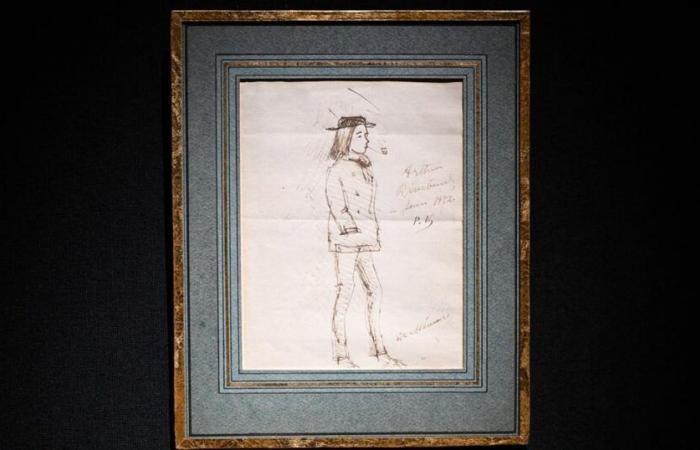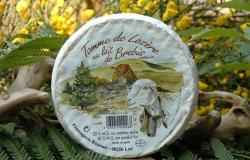The drawing by the French poet Paul Verlaine showing his lover in his youth is one of the only visual traces of Arthur Rimbaud's life known to date.
A portrait of Arthur Rimbaud drawn by another poet, Paul Verlaine, was sold at auction on Monday for 585,000 euros, a price much higher than initial estimates, announced the Drouot auction house. This pen and brown ink drawing includes the date of “June 1872”but Verlaine indicates that it represents the adolescent “from memory”at a time which is therefore not certain. The young poet, 17 years old, is shown in profile, lanky figure, long hair in a hat, hands in his pockets and smoking a pipe. Rimbaud was then at odds, not only with his family, whom he was fleeing, but also with the Parisian literary world where he was introduced at the end of 1871 and where his excesses shocked people. Only Verlaine supports him.
“It is at this moment that the destiny of the two lovers will be linked”explained Ambroise Audoin, sales expert, interviewed by AFP before the sale. In July 1872, the two poets went on a trip to Belgium and London where they experienced the most intense moments of their love story. It ends with the gunshots of a drunken and desperate Verlaine, which slightly wounded Rimbaud in July 1873. “The reappearance of this iconic image of French literature could only arouse such enthusiasm”commented Ambroise Audoin in a press release.
An estimate of 200,000 euros
The journey of this drawing, always passed through private collections, was not known until it was purchased by the former director of the Paris Opera Hugues Gall, who died in May. Drouot thinks that one of its first owners must have been the publisher Léon Vanier, who published the first “Complete Poems” by Rimbaud in 1895, posthumously.
The drawing, “after a long bidding battle”well beyond the high estimate of 200,000 euros, “joins a private collection” once again, said Drouot. Rimbaud's life left few visual traces. Only six authenticated photos of him are known, one taken in his hometown of Charleville in 1866, two in Paris in 1871 and three in Harar (Ethiopia) in 1883.






